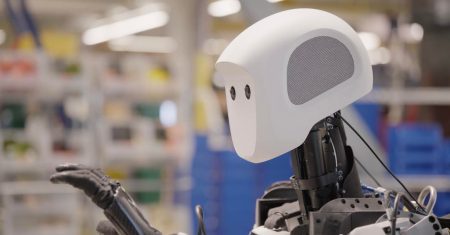Salesforce has been busy. The company closed out 2022 with shares trading at their lowest value since the start of the pandemic, but has since seen a resurgence as tech gained momentum throughout 2023. Meanwhile, just a week ago, CEO/Co-founder Marc Benoiff announced a major leadership overhaul following the company’s slowest quarterly revenue growth since 2010. Still, there’s a reason Salesforce is the often referred to as the world’s No. 1 CRM.
With AI on the top of minds of enterprises everywhere, Salesforce was also expected to come out declaratively with its AI strategy, which culminated on June 12 at Salesforce’s “AI Day,” where Benioff announced the new Salesforce AI Cloud which will bring the power of generative AI to enterprise users. In an ever-tightening CRM marketplace, it’s a huge flex, and one that proves Salesforce has a clear strategy in mind for the future of the company.
Salesforce AI Cloud: What is it, and why is it important?
The Salesforce AI Cloud is a “suite of capabilities” that will incorporate the power of real-time generative AI into its many apps and workflows. According to Salesforce, AI Cloud is all about productivity in the CRM. Sure, Salesforce has always had data and analytics. But now that data will be easier to act upon for sales, marketing, commerce and marketing teams.
A few examples of Salesforce AI Cloud in “real life”:
- Commerce teams can ask for automatic insights and recommendations on ways to improve the user experience throughout the customer journey
- Marketing teams can use AI Cloud to automatically create personalized content for a variety of channels—email, web, mobile—to keep customers engaged
- Similar to Chat GPT, sales reps can use AI Cloud to auto-generate personalized emails for their customers, within the Salesforce portal
- Service teams can use AI Cloud to automatically generate agent chat replies for trending issues or automatically document summaries of service call interactions
- Even developers can use AI Cloud to automatically generate code, predict bugs in their own code, and auto-create suggested fixes for the bugs they anticipate.
The big word here: automatically. Rather than pulling reports and sorting through them to find meaning, the meaning is presented with myriad opportunities to act upon it. To help, Salesforce says it’s also working to create “optimized AI prompts” that use harmonized data to help ground the outputs that are generated in a company’s specific context/use case. That will help ensure that even those new to generative AI will see value from using it. In short, AI Cloud fills the gap between data and action that’s been plaguing the enterprise for a decade.
Salesforce AI Cloud: More than generative AI
There’s a lot of generative AI being announced in the industry right now. One of the more compelling elements of Salesforce AI Cloud is what Salesforce is calling the Einstein GPT Trust Layer. Basically, it’s an extra step in keeping data security and compliance on point. The layer, according to Salesforce, will prevent the large language models (LLMs) being used in generative AI from storing customer data. This separation of data and LLM is what will ultimately keep the data safe. This issue of trust is a huge deal right now in generative AI. Salesforce itself says it found that 73 percent of employees think generative AI creates security risks. What’s more, 60 percent of people who do plan to use generative AI say they don’t know how to keep their information secure. Combine those intrinsic trust issues with things like AI bias and the general unknown about how AI will continue to grow and change the world, and the focus on trust is one of AI Cloud’s most illuminating features.
Salesforce AI Cloud: How big is the ecosystem?
Salesforce AI Cloud integrates with Einstein, Slack, Flow, MuleSoft, Tableau and Data cloud. It’s part of an open ecosystem of LLMs and can host LLMs from Amazon Web Services (AWS), Cohere, Anthropic and others. Salesforce encourages the Bring Your Own Model (BYOM) concept of LLMs, meaning that customers who have their own domain-specific LLMs can still use AI Cloud while storing data in their own infrastructures. They’ll be able to connect to the through the Einstein GPT Trust Layer.
Salesforce moving forward
In addition to the shakeup in leadership announced at the start of the piece, Salesforce also recently appointed a new CEO of Salesforce AI, Clara Shih. This shows a clear commitment on the part of Salesforce to continue to make AI a priority for its CRM solutions and hopefully alleviate some of the concerns the company has seen in the past year. Without knowing what’s ahead for Salesforce, I’d guess it’s more of this: leaps in enhancing productivity and value for its customers through generative AI. [MB2] Now that the system is in place, I would expect new tools and features to be announced regularly moving forward. In fact, in addition to announcing AI Cloud, Salesforce announced it has doubled its venture capital availability for generative AI startups to a cool $500 million.
When will Salesforce AI Cloud be available?
According to Salesforce, customers are already using many of Salesforce’s new AI capabilities, including AAA, RBC US Wealth Management and Gucci. The AI Cloud “Starter Pack” is set to cost $360,000 per year, meaning it won’t necessarily be “accessible” for smaller businesses. The Einstein GPT Trust Layer will be available this month. I expect the pricing and packages to continue to evolve quickly to address the broader Salesforce customer base as this technology is designed to help companies of all sizes. Furthermore, I expect Salesforce AI Cloud to be an incremental boost to revenue and an important capability to not only win new clients, but retain its market share as well.
I think one of the main reasons they are able to move so quickly now is they have been committed to and invested in AI, with directive from the top, for nearly 10 years. While questions have arisen to the efficacy of its early efforts, it is obvious that Salesforce was ready for the moment. The company has built, as an early AI innovator, all the fundamentals it takes to succeed with AI; focused on what they thought AI could do for them, realizing they had the right kinds of use cases (predictive) and that they could potentially leverage significant, clean data (AI fuel). Its corporate culture is conducive to innovation, and it is focused to not let egos mess with the mission.
Read the full article here










